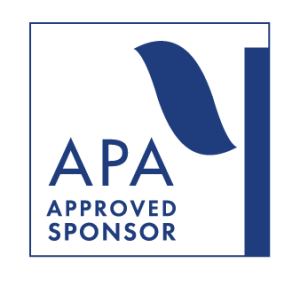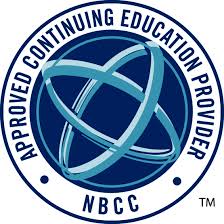April 30 – May 1, 2026
8:30am – 4:00pm Pacific Time
11:30am – 7:00pm Eastern Time
Presented via Zoom Video Communications
PRESENTED BY
Dorian Hunter, PhD
![]() DBT-Linehan Board of Certification Certified Clinician™
DBT-Linehan Board of Certification Certified Clinician™
COURSE DESCRIPTION
Developed and overseen by Linda Dimeff, PhD, an internationally recognized expert and coauthor of Dialectical Behavior Therapy for Substance Use Disorders (BPD-SUD; Linehan & Dimeff, 1997), DBT for Substance Use Disorders (SUD) is an expansive treatment for individuals with Borderline Personality Disorder (BPD) and Substance Use Disorders. This training is a practical workshop that will provide participants with a comprehensive working knowledge of the adaptations to be made when working with individuals with BPD-SUD. As individuals with BPD-SUD experience different problems from individuals with BPD, this workshop will address these specific problems and the specific adaptations to standard DBT. The trainer will also describe how the treatment evolved over time, and will provide rich clinical examples to bring the content to life. To ensure that participants leave with well-honed skills, we apply an active teaching method that combines didactic instruction with immersive role plays.
LEARNING OBJECTIVES
Upon completion of the training, participants will be able to:
- Describe major findings from research on DBT for clients with BPD and Substance Use Disorders.
- Define Dialectical Abstinence in DBT with clients who have BPD and SUD.
- List three specific treatment targets for clients with SUD and BPD.
- Describe three skills specifically designed for SUD clients.
- List three attachment strategies.
- Describe how lying is targeted, addressed, and treated when treating BPD SUD clients.
Instructor | Dorian Hunter, Ph.D. is a DBT-Linehan Board of Certification Certified Clinician and licensed clinical psychologist in Washington State. She provides APA-approved continuing education trainings and workshops on Dialectical Behavior Therapy (DBT), mindfulness and mindfulness-based interventions, alcohol and other substance use disorders, and cognitive behavioral therapy (CBT). She also provides consultation to DBT teams, teaching individual DBT clinicians and DBT teams doing and hoping to do DBT, increase their treatment fidelity, and/or improve clinical skills. She also practices clinically and trains students and fellows in her group practice, the DBT Center of Tacoma, providing supervision, consultation, and didactics to trainees learning DBT. She also maintains an independent practice, which includes implementation of all modes of DBT.
Dr. Hunter completed her undergraduate, post-baccalaureate, and post-doctoral training at the University of Washington Behavioral Research and Therapy Clinics (BRTC), under the direction of the DBT treatment developer, Dr. Marsha Linehan. At the BRTC she worked as a research assistant, treatment coordinator, research fellow, and study therapist on multiple studies of DBT, including pilot studies and clinical trials focused on development and evaluation of DBT for clients with suicidal behaviors, alcohol and other substance use disorders, and multi-family DBT for adolescents and their parents. Dr. Hunter completed her Masters’ and Doctorate degrees at Rutgers University, where she was a National Institute on Alcohol Abuse and Alcoholism (NIAAA) fellow throughout her training. Her graduate work focused primarily on developing and evaluating cognitive behavioral interventions for alcohol and other substance use disorders, particularly through the lens of interpersonal functioning. She additionally completed a clinical post-doctoral fellowship at the Evidence Based Treatment Centers of Seattle, with specialized training in DBT and interventions for anxiety disorders. Dr. Hunter has published book chapters and articles on DBT and other evidence-based interventions, and underlying psychological processes related to behavior change.
WHO SHOULD ATTEND?
This is not an introductory training. It is intended for individuals who are already applying DBT Individual Therapy in their practice and/or who directly supervise other clinicians who provide DBT. By contrasting DBT-SUD with standard DBT, participants can also expect to deepen their understanding and practice of DBT.
REQUIREMENTS AND PREREQUISITES
It is required that attendees are current members of a DBT team, and have received no less than 20 hours of DBT training.
PRICING:
| Individual Registration Fee $399.00 | Group Registration Fee for 3 or more people $375.00/person | Students are eligible for 15% off individual registration fee* |
*email training@pdbti.org for student discount code
CONTINUING EDUCATION HOURS
Participants who complete all training days will earn 12 CE hours.

Portland DBT Institute, Inc. (PDBTI) is approved by the American Psychological Association to sponsor continuing education for psychologists. PDBTI maintains responsibility for this program and its content.
 Portland DBT Institute has been approved by NBCC as an Approved Continuing Education Provider, ACEP No. 6326.
Portland DBT Institute has been approved by NBCC as an Approved Continuing Education Provider, ACEP No. 6326.
Programs that do not qualify for NBCC credit are clearly identified. Portland DBT Institute is solely is responsible for all aspects of the programs.
Private Training Requests
Portland DBT Institute training is available to schedule as a private training for your group. PDBTI’s training team travels locally, nationally, and internationally, to provide evidence based, adherent DBT training. Please fill out our Training Request Form and a training coordinator will contact you to see how we can work together to exceed your organization’s training goals.
CANCELLATIONS AND REFUNDS
A $60.00 handling fee will be deducted upon cancellation. Refund requests by fax or email must be received two weeks before the start date. In addition, the fees are non-transferrable.
PDBTI reserves the right to cancel any program due to under-enrollment, or any course due to work stoppages, instructor illness or inclement weather. If a course is cancelled, PDBTI is responsible for refunding only the course fee.
